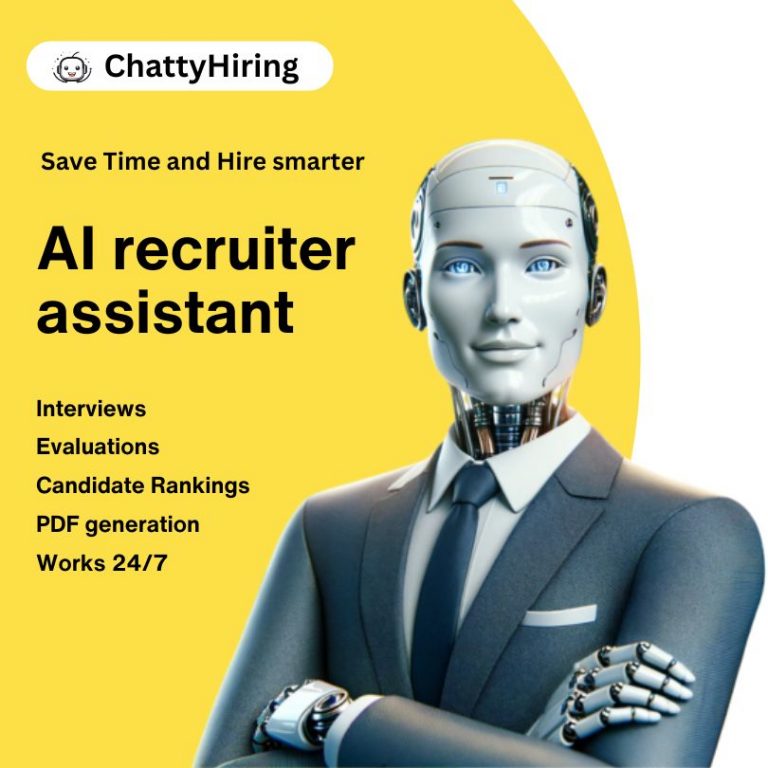We wanted to cover some of the candidate screening best practices you should take into consideration before starting your next hiring. The hiring process, often likened to building the foundation of a house, is a critical endeavor for every business. It is the gateway to welcoming new talents into your organization, and it all begins with the prescreening interview. This initial step holds the key to identifying potential candidates who possess the skills, qualifications, and personal qualities your company requires.
Before delving into the best practices for prescreening interviews, it’s essential to understand their significance in the larger hiring context. These interviews serve as the gateway that separates prospective candidates from those who may not be the best fit for the position. In a world where the competition for top talent is fierce, a well-executed prescreening process can save both time and resources by narrowing down the field to those who truly meet your criteria.
Key elements to validate during the prescreening phase
In the intricate puzzle of the hiring process, the prescreening phase serves as the initial filter. This critical stage is where you can separate the wheat from the chaff, ensuring that the individuals you select for further evaluation possess the essential qualities and qualifications required for the role.
It is imperative to explore the key elements that will enable best candidate screening practices. These elments deserve your attention and validation to be successful in your search:
- Relevant Experience: One of the primary aspects to assess during a prescreening interview is a candidate’s relevant experience. Are their past roles and responsibilities closely aligned with the job at hand? This will help you determine whether they have the practical know-how needed for the position.
- Soft Skills: While hard skills are undoubtedly important, the significance of soft skills should not be underestimated. The ability to communicate effectively, collaborate with colleagues, solve problems, and adapt to changing situations is often what sets outstanding candidates apart.
- Culture Fit: Your company’s values and culture play a vital role in maintaining a cohesive and productive work environment. Use the prescreening interview to gauge whether the candidate’s values align with your company’s, ensuring a harmonious fit.
- Availability: Time is of the essence when it comes to hiring, and it’s essential to confirm that the candidate’s availability matches your requirements. There’s no point in proceeding with someone who cannot start when needed.
- Salary Expectations: Be sure to inquire about the candidate’s salary expectations early on. This will help you avoid wasting time on applicants whose financial expectations don’t align with your budget.

Main problems when screening candidates
Despite the benefits, screening interviews come with their own set of challenges. This phase in the hiring process can sometimes feel like navigating a maze with hidden obstacles. Recognizing and addressing these hurdles is essential to conducting a smooth and effective prescreening process.
- Time Constraints: screening interviews typically have a time limit, making it challenging to comprehensively assess candidates. This constraint means that you must prioritize your questions and assessments carefully.
- Unqualified Applicants: Sorting through a deluge of applications to find the most qualified candidates can be like searching for a needle in a haystack. This is where the prescreening interview should excel in separating the wheat from the chaff.
- Bias: It’s essential to acknowledge the potential for bias during the prescreening process. Bias can arise from preconceived notions or even unconscious prejudices. Having structured and standardized interview questions can help mitigate this issue.
- Incomplete Information: At times, the information available on resumes and in applications may be incomplete or vague. This can hinder your ability to make informed decisions during the prescreening interview.
- Communication Barriers: Evaluating soft skills can be challenging through virtual interviews. It’s harder to gauge non-verbal cues, making the assessment of communication and interpersonal skills more complex.
Average screening time might be between 1 week and 10 days, covering almost 30% of the hiring time for talent acquisition managers. At the same time, this phase is often frustrating in terms of candidate experience. Many times, candidates feel abandoned in their intend to be heard by the company.
Ideal Techniques for Screening Interviews
The context in which we conduct screening interviews has seen a remarkable transformation in recent years, with a surge of solutions and tools aimed at streamlining and enhancing the process. These advancements have proven invaluable for HR professionals and talent acquisition teams, offering a wealth of options to optimize their candidate assessment methods.
To overcome these challenges, consider the following techniques for effective prescreening interviews:
- Structured Interviews: Implementing a structured interview process involves asking every candidate the same set of questions. This consistency ensures that each candidate is evaluated based on the same criteria, reducing bias and enhancing fairness.
- Behavioral Questions: Behavioral questions require candidates to share specific instances from their past experiences. For example, asking how they resolved a conflict with a team member can reveal their problem-solving and interpersonal skills.
- Skills Tests: In technical roles, it’s often essential to verify a candidate’s skills through practical tests or assessments. This approach ensures that candidates can demonstrate their abilities effectively.
- Reference Checks: Contacting references provided by candidates can offer valuable insights into their qualifications, character, and work ethic.
- Panel Interviews: For critical roles or those with multiple stakeholders, consider conducting panel interviews. Involving multiple interviewers from various departments can provide diverse perspectives and a more well-rounded evaluation.

AI Solutions that can help to screen candidates
In today’s dynamic job market, the quest for efficient and innovative solutions in candidate screening has never been more crucial. The demand for talent continues to rise, prompting the development of a multitude of tools and technologies aimed at simplifying and enhancing the hiring process. It’s a reflection of the pivotal role that prescreening plays in the competitive race for the best candidates. Let’s explore some of these cutting-edge tools and AI solutions that are shaping candidate screening best practices:
AI Interviewer: revolutionizing candidate assessment
Among the arsenal of tools, the AI Interviewer stands out as one of the newest and most revolutionary AI solution. The AI performs the screening interview using its own generated questions and having real-time conversations with the candidates. At the same time, AI Interviewers analyze candidates answers and checks if they fit with the job description and the company values. With an AI Interviewer assistant, you can cut your screening time almost to nothing while providing an excelent candidate experience.
Keywords filters: streamlining CV evaluation
Keywords filters, commonly integrated into many Applicant Tracking Systems (ATS), provide an automated approach to CV evaluation. This tool scans resumes and applications for specific keywords, expediting the initial screening interview process. However, it does have limitations. While it efficiently filters based on keywords, it may not always provide a well-rounded selection of candidates. This issue has led to the development of alternative software solutions that aim to address this shortcoming and offer a more balanced candidate pool.
Traditional chatbots: collecting key data with efficiency
Traditional chatbots have been employed as a means to gather essential data from candidates. They serve as a conduit for collecting basic information and can be useful for preliminary interactions. However, traditional chatbots have their shortcomings. They often entail a lot of manual intervention from recruiters, which can be time-consuming. At the same time, the candidate experience, in many cases, leaves much to be desired. The impersonal and cumbersome nature of these interactions can deter candidates.
Candidates-jobs matching: sourcing with a twist
The candidates-jobs matching tool has gained popularity for its ability to scour the internet and identify candidates that align with job openings. This tool excels in sourcing candidates based on their qualifications and experience, streamlining the initial stages of recruitment. However, it primarily focuses on hard skills and qualifications, often overlooking the vital aspect of soft skills and a candidate’s performance in an interview.
Asynchronous video interviews: a double-edged sword
While asynchronous video interviews offer the flexibility of time for both candidates and recruiters, they can sometimes slow down the screening candidate process by few days. The asynchronous nature, where candidates record their responses to predefined questions, can create bottlenecks and delays. In cases where expediency is a priority or for positions that demand swift recruitment, asynchronous video interviews may prove to be a barrier.
Automatic schedulers: simplifying logistics
The automatic scheduler, although seemingly straightforward, plays a vital role in automating the logistics of scheduling calls and interviews. It is often embedded within ATS software, streamlining the coordination of interview times and dates. While it may not be as flashy as some other AI tools, it contributes significantly to the efficiency of the recruitment process.

Tips and Recommendations
Here are some valuable tips and recommendations for a successful candidate screening best practices:
- Clearly Define Job Requirements: A detailed and accurate job description is the foundation of your hiring process. Ensure it specifies the skills, qualifications, and expectations for the role to attract suitable candidates.
- Training for Interviewers: Provide training to interviewers to reduce bias, improve interview techniques, and ensure consistency in the evaluation process. This can make a substantial difference in the quality of candidate assessments.
- Use Technology Wisely: While AI tools can be incredibly helpful, remember that they are meant to support, not replace, human judgment. Use them as a supplement to your process rather than a replacement.
- Prioritize Soft Skills: Soft skills are often as important as hard skills in predicting long-term success within your organization. Ensure you assess them carefully during prescreening interviews.
- Give Feedback: Regardless of whether a candidate is selected or not, offering constructive feedback is a sign of professionalism. It can leave a positive impression and contribute to your employer brand.
In conclusion, the prescreening interview is a pivotal stage in the hiring process. It acts as the gatekeeper, allowing only the most promising candidates to move forward in the selection process. By focusing on utilizing ideal techniques, HR professionals and business owners can enhance their prescreening process and make more informed hiring decisions.
Ultimately, a well-structured and thoughtful prescreening process is the first step toward building a successful company.
-

A passionate advocate for the future of HR innovation. With expertise in leveraging AI to revolutionize recruitment processes, Carlos has a clear vision: empower HR teams while creating meaningful candidate experiences.
View all posts


